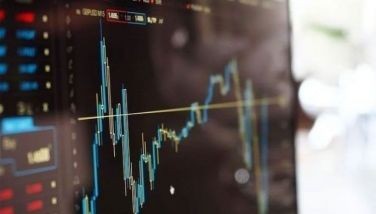Global economic slowdown

From time to time, we answer questions sent to us through our column. We quote a question from one of our readers below:
“Firstly, I would like to say that your articles have been very inspiring and helpful in many ways. You are a first-rate analytical thinker of the Philippine financial market, as well as touching and dissecting markets abroad which, in turn, affect us here at home, and our Asian neighbors as well. Again, thank you for giving your readers, and me in particular, your weekly insightful analysis of the Philippine market.
“Secondly, I would like to know your thoughts specifically after having read the article on John Hussman regarding the impending collapse of the US market. How do you think the Philippine market will play out from now up to 2020 with what is going on between the US-China trade issues?”
Understanding the bull and the bear
Obviously, the reader is quite apprehensive about markets because of the volatility in the US stock market and talks of a potential market collapse. To understand what is happening in the stock market now, we have to understand what created the longest bull market in history. As we explained in Chapter 4 of our book, Opportunity of a lifetime, the nine-year bull market was caused by global monetary easing. Starting with the US Fed, central banks around the world employed quantitative easing (QE) to drive stock prices higher and spark economic growth. Their theory was that if they bring interest rates down significantly, stock prices would move higher and pull the world out of a recession. History shows that the central banks were right.
From easing to tightening
However, after this wave of monetary easing, the Fed has started tightening monetary policy, while Europe just ended its stimulus last week. Some countries, like the Philippines, have also started tightening as well. Bond yields are starting to rise as central banks raise benchmark interest rates and buy less bonds. With the era of easy money now ending, one of the main factors behind our bull market has been taken away. Thus, stock market returns moving forward may be lower than what we were used to in the past nine years.
Synchronized global economic slowdown
The year 2016 was the first time in more than two decades that the entire world was growing at the same time. This synchronized global economic growth was the product of coordinated central bank action, the fruit of which was the continuation of the bull market in stocks (see Synchronized global growth, June 12, 2017). Unfortunately, global growth is now in question. Japan’s most recent growth figures indicate that its economy is contracting. China’s numbers are starting to show weakness, Europe’s GDP growth continues to be tepid, while the growth of commodity-producing countries is being dragged down along with oil and metal prices. Even the US is expected to post slower growth next year after a very strong 2018. This can be partially attributed to rising interest rates, which have led to significantly higher borrowing costs that in turn causes slower capital expenditures.
Yield curve inversion
These expectations of lower growth next year are likewise reflected in the yield curve of US Treasuries. The two-year yield is now higher than the five-year yield. This means that investors are expecting longer term interest rates to be lower than what they are now. This indicates that they are also expecting global growth to slow down significantly in the future. This partial inversion of the yield curve has led to apprehension and concerns that the longer term portion of the yield curve may also fully invert. An inverted yield curve is one of the most widely watched recession signals, hence the selloff in global stocks when it started to occur.
Trade war headlines move markets
There is another factor that has caused economists to lower their growth forecasts for at least the next 12 months – the US-China trade war. With additional tariffs already covering more than $300 billion worth of products from both countries, a prolonged trade war will have a negative impact on global trade. With further escalation having even more dire consequences, investors ran for the hills and reduced their equity exposure. Although the US and China have announced a 90-day truce during which negotiations will commence, markets continue to be driven by daily headlines. News of a potential deal or even just a phone call between the two parties sent stocks higher almost immediately. On the other hand, any potential deal breakers such as the arrest of Huawei’s CFO or hostile tweets from Trump cause markets to drop sharply.
Tricky and uncertain
One thing that markets hate is uncertainty. With the Fed tightening and interest rates moving higher in most countries, the resolution of the trade war being unclear, along with evidence that the global economy is slowing down, markets have become very volatile. In fact, my friend who was an analyst in one of the top investment houses in the world, describes the US market as “very tricky”.
Phl not immune to global markets
Fortunately, things are looking better domestically. The government and BSP have done their part in controlling inflation. The recent outperformance of the Philippine peso against the dollar helped the PSEi recover and also bodes well for stock prices, if its appreciation continues. However. we have to remember that the PSEi is not immune to the movement of global markets and the risks mentioned above.
Over the long term, even if there are speed bumps, we believe that stock prices will be higher than they are today as companies and the Philippine economy continue to grow. As we said in a previous article (see From Worst to Best, July 30), “it is likely we have seen the lows in the market. Risks still abound… but the low registered in June and a consolidation thereafter may possibly be the start of a reversal.”
Philequity Management is the fund manager of the leading mutual funds in the Philippines. Visit www.philequity.net to learn more about Philequity’s managed funds or to view previous articles. For inquiries or to send feedback, please call (02) 689-8080 or email [email protected].
- Latest
- Trending































